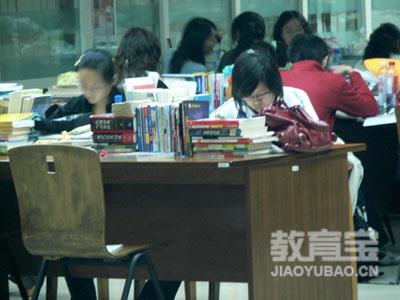 返回
教育头条
返回
教育头条

考研英语必背的单词句子及作文分享
考研前越是焦虑不安越要学习,如果你只是在焦虑在放空,那你输给别人的不是实力,是你真正付出的时间。 因为你焦虑的时候别人在学习,是不是? 所以就算再焦虑,该学习学,边焦虑边学! 千万不要趴在课桌上只焦虑不学习,那样就真的在浪费宝贵的时间。
必背单词:
underrated 被低估的
dilute 稀释
one part in one million 百万分之一
righteous indignation 义愤
are not the preserve of people alone 不是人类专有的(专属的、特有的)
slack rival 是懒散的对手(如果不知道这个单词在哪里,说明你没有认真分析选项哦)
incentive 激励
negligence 忽视
harness 控制
be susceptible to 怀疑
必背句子:
It is critical that our nation and the world base important policies on the best judgments that science can provide concerning the future consequences of present actions.
我们的国家和整个世界在做重要决策时,应该以科学能够提供的关于人类现在的行为对未来影响的佳判断作为依据,这十分关键。
To serve as responsible stewards of the planet, we must press forward on deeper atmospheric and oceanic research.
为了成为地球上有责任心的管理员,我们必须推进对于大气和海洋的深入研究。
(句式可以用于大作文,内容用于环保)
Canada’s premiers, if they have any breath left,might spare a moment to do something to reduce health-care costs.
加拿大省长们如果还有一口气的话,本该抽点时间共同做些事来降低医疗保健费用。
必背文章:
text 4
Americans no longer expect public figures, whether in speech or in writing, to command the English language with skill and gift. Nor do they aspire to such command themselves. In his latest book,Doing Our Own Thing: The Degradation of language and Music and Why We ShouldLike, Care, John McWhorter, a linguist and controversialist of mixed liberal and conservative views, sees the triumph of 1960s counter-culture as responsible for the decline of formal English.
美国人不再期待公众人物在演讲或写作中能运用技巧和文采来驾驭英语,而公众人物自己也不渴望这样。语言学家麦荷特喜好争论,他的观点混杂着自由派与保守派的看法。在他近的书《做我们自己的事:语言和音乐的退化,以及为什么我们应该喜欢或在意?》中,这位学者认为60年代反文化运动的胜利要对正式英语的退化负责。
Blaming the permissive 1960s is nothing new, but this is not yet another criticism against the decline in education. Mr. McWhorter’s academic speciality is language history and change, and he sees the gradual disappearance of “whom”, for example, to be natural and no more regrettable than the loss of the case-endings of Old English.
责备放纵的六十年代不是什么新鲜事,但这次算不上是对教育衰落的又一场批判。麦荷特先生的学术专长在于语言史和语言演变。举例来说,他认为“whom”一词的逐渐消失是自然的,并不比古英语中词格的消失更让人惋惜。
But the cult of the authentic and the personal, “doing our own thing”, has spelt the death of formal speech, writing, poetry and music. While even the modestly educated sought an elevated tone when they put pen to paper before the 1960s, even the most well regarded writing since then has sought to capture spoken English on the page. Equally, in poetry, the highly personal, performative genre is the only form that could claim real liveliness. In both oral and written English,talkingis triumphing over speaking, spontaneity over craft.
然而,“做自己的事”这一对事物真实性和个人性的崇尚信条,已经导致了正式演讲、写作、诗歌及音乐的消亡。在20世纪60年代以前,仅受过一般教育的人在下笔时都会寻求一种更高雅的腔调;而那之后,即使是受关注的文章也想带上口语风格。同样的,对于诗歌来说,非常个性化的和富有表现力的创作风格成为了能够表达真实生动含义的**形式。无论作为口语还是书面语言的英语,随意言谈胜过了雅致的言辞,自我发挥也压过了精心准备。
Illustrated with an entertaining array of examples from both high and low culture, the trend that Mr. McWhorter documents is unmistakable. But it is less clear, to take the question of his subtitle, why we should, like, care. As a linguist, he acknowledges that all varieties of humanlanguage, including non-standard ones like Black English, can be powerfully expressive—there exists no language or dialect in the world that cannot convey complex ideas. He is not arguing, as many do, that we can no longer think straight because we do not talk proper.
麦荷特先生从上层和下层中列举了一系列有趣的例子,从而说明他所记录的这种趋势是确凿无误的。但就书中副标题中的疑问:为什么我们应该喜欢或在意,答案却不够明确。作为语言学家,麦荷特认为各种各样的人类语言,包括像黑人英语这样的非标准语言,都具有强大的表达力——世上没有传达不了复杂思想的语言或方言。不像其他大多数人,麦荷特先生并不认为我们说话方式不再规范就会使我们不能够准确地思考。
Russians have a deep love for their own language and carry large chunks of memorized poetry in their heads, while Italian politicians tend to elaborate speech that would seem old-fashioned to most English-speakers. Mr. McWhorter acknowledges that formal language is not strictly necessary, and proposes no radical education reforms—he is really grieving over the loss of something beautiful more than useful. We now take our English “on paper plates instead of china”. A shame, perhaps, but probably an inevitable one.

俄罗斯人深爱自己的语言,并在脑海中存储了大量诗歌;而意大利的政客们则往往精心准备演讲,即使这在大多数讲英语的人们眼里已经过时。麦荷特先生认为正式语言并非不可或缺,也没有提出要进行彻底的教育改革——他其实只是为那些美好事物而不是实用的东西的消逝而哀叹。我们现在用“纸盘子”而非“瓷盘子”盛着我们的英语大餐。真是惭愧啊,但很可能已无法避免。
必背翻译:
1.Television is one of the means by which these feelings are created and conveyed—and perhaps never before has it served so much to connect different peoples and nations as in the recent events in Europe.
电视是引发和传递这些感受的手段之一——在欧洲近来发生的事件中,它把不同的民族和国家连到一起,其作用之大,前所未有。
2.In Europe, as elsewhere, multi-media groups have been increasingly successful; groups which bring together television, radio, newspapers, magazines and publishing houses that work in relation to one another.
在欧洲,像在其他地方一样,传媒集团越来越成功:这些集团将相关的电视、广播、报纸、杂志和出版社组合在一起。
3.This alone demonstrates that the television business is not an easy world to survive in, a fact underlined by statistics that show that out of eighty European television networks, no less than 50% took a loss in 1989.
这一点就足以表明,要在电视行业里生存下来并非易事。统计数字尤其说明了这一事实,在80个欧洲电视网中,多达一半在1989年亏损。
4.Creating a “European identity” that respects the different cultures and traditions which go to make up the connecting fabric ofthe Old Continent is no easy task and demands a strategic choice.
不同的文化和传统把欧洲大陆编织成一体,要创造出一种尊重这些不同文化和传统的“欧洲品牌”绝非易事,需要人们做出战略性的选择。
5.In dealing with a challenge on such a scale, it is no exaggeration to say, “United we stand, divided we fall”.
必背单词:
underrated 被低估的
dilute 稀释
one part in one million 百万分之一
righteous indignation 义愤
are not the preserve of people alone 不是人类专有的(专属的、特有的)
slack rival 是懒散的对手(如果不知道这个单词在哪里,说明你没有认真分析选项哦)
incentive 激励
negligence 忽视
harness 控制
be susceptible to 怀疑
必背句子:
It is critical that our nation and the world base important policies on the best judgments that science can provide concerning the future consequences of present actions.
我们的国家和整个世界在做重要决策时,应该以科学能够提供的关于人类现在的行为对未来影响的佳判断作为依据,这十分关键。
To serve as responsible stewards of the planet, we must press forward on deeper atmospheric and oceanic research.
为了成为地球上有责任心的管理员,我们必须推进对于大气和海洋的深入研究。
(句式可以用于大作文,内容用于环保)
Canada’s premiers, if they have any breath left,might spare a moment to do something to reduce health-care costs.
加拿大省长们如果还有一口气的话,本该抽点时间共同做些事来降低医疗保健费用。
必背文章:
text 4
Americans no longer expect public figures, whether in speech or in writing, to command the English language with skill and gift. Nor do they aspire to such command themselves. In his latest book,Doing Our Own Thing: The Degradation of language and Music and Why We ShouldLike, Care, John McWhorter, a linguist and controversialist of mixed liberal and conservative views, sees the triumph of 1960s counter-culture as responsible for the decline of formal English.
美国人不再期待公众人物在演讲或写作中能运用技巧和文采来驾驭英语,而公众人物自己也不渴望这样。语言学家麦荷特喜好争论,他的观点混杂着自由派与保守派的看法。在他近的书《做我们自己的事:语言和音乐的退化,以及为什么我们应该喜欢或在意?》中,这位学者认为60年代反文化运动的胜利要对正式英语的退化负责。
Blaming the permissive 1960s is nothing new, but this is not yet another criticism against the decline in education. Mr. McWhorter’s academic speciality is language history and change, and he sees the gradual disappearance of “whom”, for example, to be natural and no more regrettable than the loss of the case-endings of Old English.
责备放纵的六十年代不是什么新鲜事,但这次算不上是对教育衰落的又一场批判。麦荷特先生的学术专长在于语言史和语言演变。举例来说,他认为“whom”一词的逐渐消失是自然的,并不比古英语中词格的消失更让人惋惜。
But the cult of the authentic and the personal, “doing our own thing”, has spelt the death of formal speech, writing, poetry and music. While even the modestly educated sought an elevated tone when they put pen to paper before the 1960s, even the most well regarded writing since then has sought to capture spoken English on the page. Equally, in poetry, the highly personal, performative genre is the only form that could claim real liveliness. In both oral and written English,talkingis triumphing over speaking, spontaneity over craft.
然而,“做自己的事”这一对事物真实性和个人性的崇尚信条,已经导致了正式演讲、写作、诗歌及音乐的消亡。在20世纪60年代以前,仅受过一般教育的人在下笔时都会寻求一种更高雅的腔调;而那之后,即使是受关注的文章也想带上口语风格。同样的,对于诗歌来说,非常个性化的和富有表现力的创作风格成为了能够表达真实生动含义的**形式。无论作为口语还是书面语言的英语,随意言谈胜过了雅致的言辞,自我发挥也压过了精心准备。
Illustrated with an entertaining array of examples from both high and low culture, the trend that Mr. McWhorter documents is unmistakable. But it is less clear, to take the question of his subtitle, why we should, like, care. As a linguist, he acknowledges that all varieties of humanlanguage, including non-standard ones like Black English, can be powerfully expressive—there exists no language or dialect in the world that cannot convey complex ideas. He is not arguing, as many do, that we can no longer think straight because we do not talk proper.
麦荷特先生从上层和下层中列举了一系列有趣的例子,从而说明他所记录的这种趋势是确凿无误的。但就书中副标题中的疑问:为什么我们应该喜欢或在意,答案却不够明确。作为语言学家,麦荷特认为各种各样的人类语言,包括像黑人英语这样的非标准语言,都具有强大的表达力——世上没有传达不了复杂思想的语言或方言。不像其他大多数人,麦荷特先生并不认为我们说话方式不再规范就会使我们不能够准确地思考。
Russians have a deep love for their own language and carry large chunks of memorized poetry in their heads, while Italian politicians tend to elaborate speech that would seem old-fashioned to most English-speakers. Mr. McWhorter acknowledges that formal language is not strictly necessary, and proposes no radical education reforms—he is really grieving over the loss of something beautiful more than useful. We now take our English “on paper plates instead of china”. A shame, perhaps, but probably an inevitable one.

俄罗斯人深爱自己的语言,并在脑海中存储了大量诗歌;而意大利的政客们则往往精心准备演讲,即使这在大多数讲英语的人们眼里已经过时。麦荷特先生认为正式语言并非不可或缺,也没有提出要进行彻底的教育改革——他其实只是为那些美好事物而不是实用的东西的消逝而哀叹。我们现在用“纸盘子”而非“瓷盘子”盛着我们的英语大餐。真是惭愧啊,但很可能已无法避免。
必背翻译:
1.Television is one of the means by which these feelings are created and conveyed—and perhaps never before has it served so much to connect different peoples and nations as in the recent events in Europe.
电视是引发和传递这些感受的手段之一——在欧洲近来发生的事件中,它把不同的民族和国家连到一起,其作用之大,前所未有。
2.In Europe, as elsewhere, multi-media groups have been increasingly successful; groups which bring together television, radio, newspapers, magazines and publishing houses that work in relation to one another.
在欧洲,像在其他地方一样,传媒集团越来越成功:这些集团将相关的电视、广播、报纸、杂志和出版社组合在一起。
3.This alone demonstrates that the television business is not an easy world to survive in, a fact underlined by statistics that show that out of eighty European television networks, no less than 50% took a loss in 1989.
这一点就足以表明,要在电视行业里生存下来并非易事。统计数字尤其说明了这一事实,在80个欧洲电视网中,多达一半在1989年亏损。
4.Creating a “European identity” that respects the different cultures and traditions which go to make up the connecting fabric ofthe Old Continent is no easy task and demands a strategic choice.
不同的文化和传统把欧洲大陆编织成一体,要创造出一种尊重这些不同文化和传统的“欧洲品牌”绝非易事,需要人们做出战略性的选择。
5.In dealing with a challenge on such a scale, it is no exaggeration to say, “United we stand, divided we fall”.
以上就是教育宝头条带来的考研英语必背的单词句子及作文分享详细介绍,想要查看更多考研英语资讯,敬请关注教育宝头条,也可以加我微信18560125702,我会解答你的学习问题。返回教育宝头条
【免责声明】本文仅代表作者本人观点,与教育宝无关。教育宝对文中陈述、观点判断保持中立,不对所包含内容的准确性、可靠性或完整性提供任何保证。请读者仅作参考,特此声明!
相关推荐
-
复试是考研中很关键的一步在口语和听力部分有什么诀窍可以保证高分
考研英语 2018年08月15日 16:55:44 -
考研英语 2018年08月22日 00:53:16
-
考研英语 2018年09月19日 09:57:04
-
雅思阅读Global Warming in New Zealand真题讲解
考研英语 2018年09月19日 09:57:08 -
考研英语 2018年09月19日 13:41:54





